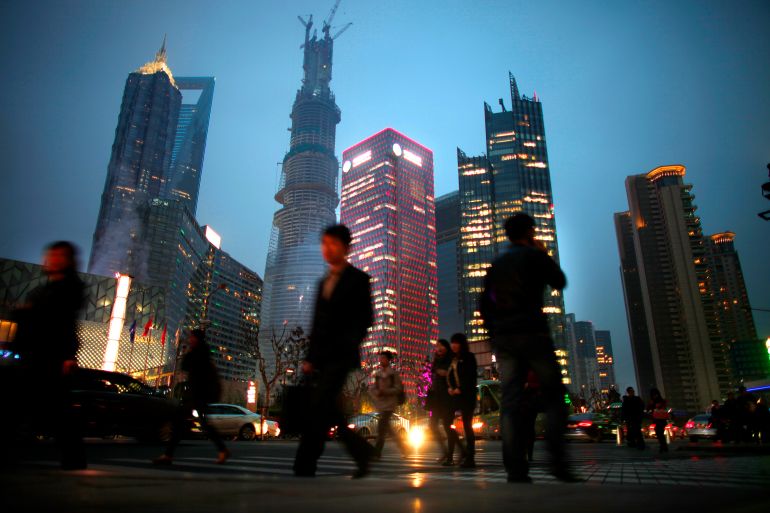China’s economy slows as ‘zero COVID’ drags down sales, industry
Retail sales and industrial output for July fall short of analysts’ forecasts after lockdowns stifle economic activity.

China’s economy slowed in July as Beijing’s ultra-strict “zero COVID” policies dragged down key metrics ranging from retail sales to industrial output.
Retail sales and industrial output grew 2.7 percent and 3.8 percent, respectively, compared with a year ago, National Bureau of Statistics (NBS) data showed on Monday, down from the previous month and far short of analysts’ forecasts.
Keep reading
list of 4 itemsPutin says Russia and N Korea will expand bilateral relations
Japan’s economy rebounds from COVID, growing 2.2 percent in Q2
Malaysia ex-PM begins final bid to quash corruption conviction
Retail sales and industrial output grew 3.1 percent and 3.9 percent, respectively, in June.
Fixed asset investment, which refers to spending on buildings, property and machinery, also came in below expectations, growing 5.7 percent in the first seven months of the year.
The nationwide jobless rate improved slightly to 5.4 percent in July, down 0.1 percent from June, while youth unemployment reached a record high of 19.9 percent.
The country’s debt-laden property market, which has been rocked by high-profile defaults in recent years, remained on a shaky footing with home prices falling 0.9 percent in July, the steepest drop since September 2015.
The lacklustre results come after the world’s second-biggest economy barely avoided contraction in the second quarter. Gross domestic product (GDP) expanded just 0.4 percent on year during April-June as authorities imposed harsh lockdowns in cities, including the financial capital Shanghai.
“The pace of recovery in June was not going to be sustainable, given that they introduced virus containment measures in several localities — including Hainan — and the housing sector slump worsened further,” Carlos Casanova, senior economist for Asia at UBP in Hong Kong, told Al Jazeera.
Despite the rest of the world learning to live with COVID-19, Beijing has stuck to a zero-tolerance strategy aimed at eradicating the virus at almost any cost.
China’s economy is widely expected to miss its official growth target of about 5.5 percent for this year, despite efforts by policymakers to shore up growth with a 33-point stimulus plan that cut taxes, boosted infrastructure spending, and deferred social security payments.
The People’s Bank of China on Monday unexpectedly lowered interest rates on key lending facilities for the second time this year, the latest effort by the central bank to prop up flagging growth.